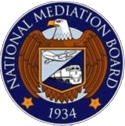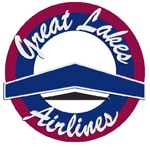For immediate release
July 7, 2017
As part of our ongoing effort to conclude national contract negotiations, the Coordinated Bargaining Group (CBG) met with the nation’s freight rail Carriers (NCCC) for three days during the week of June 26th. These efforts were part of our ongoing mediation process, mandated by the Railway Labor Act when the parties have been unable to reach a voluntary agreement, and managed by the National Mediation Board.
Despite the CBG’s best efforts to reach a fair agreement with the NCCC, the mediation process took a step backwards on Thursday, June 29th, when the Carriers presented new, onerous bargaining positions. Their new contract demands would have the employees not only paying more per month towards their monthly insurance premiums, but would also make drastic changes in the amount the average employee pays when medical services are needed. Combined with the Carriers’ outlandish demands for this dramatic cost-shifting, they suggested we agree to below-standard General Wage Increases with no retroactivity, and, for certain crafts, harmful work rules changes that would have employees doing more work for less pay in many circumstances.
It is clear from the Carrier’s latest contract demands that they are emboldened by the potential of management-friendly recommendations that could come from a Presidential Emergency Board appointed by President Trump, and ultimately be imposed on the employees by a Congress that already has enacted or is pushing for changes in longstanding labor laws that protect employee rights.
We of course are frustrated by the Carriers’ hard-line attitude. But we will not let this stand in our way. In spite of this latest turn of events, the CBG will not give up its efforts to achieve a voluntary settlement that is fair and protects our members’ best interests. We therefore requested and have been granted additional mediation sessions later this month. This is not by any means the end of the road. The Railway Labor Act makes it the duty of both labor and management “to exert every reasonable effort to make agreements.” We take that obligation seriously. Be assured that we have been working very hard on your behalf and we will continue to pursue every available avenue to achieve a fair contract settlement worthy of your consideration.
The Carrier’s latest offer is neither a fair settlement, nor a settlement that we expect our members would ratify. So that you all are fully aware of what has been proposed, and in an effort to bring all affected members up to speed, the Carrier’s latest proposal, with a brief synopsis, can be found at
https://static.smart-union.org/worksite/ContractNeg/NCCC_2017-06-29_Synopsis_and_Proposal.pdf
More information will be forthcoming after the mediation sessions scheduled later this month. We appreciate your continuing support.
# # #
The Coordinated Bargaining Group is comprised of six unions: the American Train Dispatchers Association; the Brotherhood of Locomotive Engineers and Trainmen (a Division of the Rail Conference of the International Brotherhood of Teamsters); the Brotherhood of Railroad Signalmen; the International Brotherhood of Boilermakers, Iron Ship Builders, Blacksmiths, Forgers, and Helpers; the National Conference of Firemen and Oilers / SEIU; and the Transportation Division of the International Association of Sheet Metal, Air, Rail and Transportation Workers.
Collectively, the CBG unions represent more than 85,000 railroad workers covered by the various organizations’ national agreements, and comprise over 58% of the workforce that will be impacted by the outcome of the current bargaining round.
Tag: National Mediation Board
The National Mediation Board (NMB) announced that Harry Hoglander, NMB board member since 2002, has been designated as the new Chairman of the NMB, effective immediately.
Read the NMB press release, here:

FOR IMMEDIATE RELEASE
NATIONAL MEDIATION BOARD
Contact: NMB Public Information Line — (202) 692-5050
Re: Hoglander Assumes NMB Chairmanship
Washington, D.C. — The National Mediation Board (NMB) is pleased to announce that Harry R. Hoglander has been named Chairman of the National Mediation Board, effective July 1, 2017. Linda Puchala remains as a Member of the Board.
Mr. Hoglander, a Member of the National Mediation Board since August 6, 2002, has previously served as Chairman in: 2004-2005, 2007-2008, 2010-2011, 2012-2013 and 2014-2015. He was first confirmed by the United States Senate on August 1, 2002, reconfirmed for a second term on December 8, 2006, a third term on July 24, 2009, and a fourth term on August 5, 2013.
Prior to joining the Board, Mr. Hoglander served as a Legislative Specialist in the office of Congressman John Tierney of Massachusetts with responsibilities in Transportation issues including aviation, rail and maritime, Labor, Defense and Veterans Affairs.
Mr. Hoglander has an extensive background in the aviation industry and labor relations, having flown as a Captain for Trans World Airline (TWA) and being elected Master Chairman of TWA’s Master Executive Council. He was also elected Executive Vice-President of the Air Line Pilots Association. After leaving TWA, Mr. Hoglander was named Aviation Labor Representative to the United States Bi-Lateral Negotiating Team by then Secretary of State James Baker.
Mr. Hoglander was also a pilot in the United States Air Force, retiring with the rank of Lt. Colonel. He graduated from Suffolk University Law School and is a member of the Florida Bar.
Mr. Hoglander and his wife Judith reside in Gloucester Massachusetts. They have six children.
The National Mediation Board is an independent Federal agency established by the Railway Labor Act, which governs labor-management relations within two key transportation sectors of the United States and U.S. territories: the railroads and airlines. The National Mediation Board is an independent Federal agency established by the Railway Labor Act, which governs labor-management relations within two key transportation sectors of the United States and U.S. territories: railroads and airlines.

Geale
Washington, D.C. – The National Mediation Board (NMB) is pleased to announce that Nicholas Geale became chairman of the National Mediation Board, effective July 1, 2015. Harry Hoglander and Linda Puchala remain as members of the Board. Geale was nominated by President Barack Obama on July 30, 2013 and confirmed by the United States Senate on August 1, 2013.
Prior to his appointment Geale was the Director of Oversight and Investigations for Ranking Member Lamar Alexander on the U. S. Senate Health, Education, Labor and Pensions Committee. His primary responsibilities included investigating waste, fraud and abuse in government programs, and he worked with agency Inspectors General and the Government Accountability Office in that capacity. He also evaluated and advised the committee on Presidential nominees and assisted the Health, Education, Labor and Pensions policy teams in evaluating government programs.
Before becoming Director of Oversight, Geale served as Oversight and Investigations Counsel on the Committee for ranking member Michael B. Enzi. Prior to joining the HELP Committee, he was first an attorney/advisor to the solicitor and then the counselor to the deputy secretary at the U.S. Department of Labor under the leadership of Secretary Elaine L. Chao. In both those roles, Geale assisted the department in implementing policies regarding over 180 laws under its jurisdiction and managing the Department’s 15,000 employees.
Prior to federal service, Geale had six years of experience in labor and employment matters, general commercial litigation and alternative dispute resolution in private and public practice, including serving as assistant general counsel for the Washington Metropolitan Area Transit Authority. He graduated from Georgetown Law in 1999 and Claremont McKenna College in 1996.
The National Mediation Board is an independent federal agency established by the Railway Labor Act, which governs labor-management relations within two key transportation sectors of the United States and U.S. territories: railroads and airlines.

Jane Allen joins the NMB with 22 years of experience in the airline industry. She also practiced law for five years. Ms. Allen worked for five years in a senior executive capacity at a large legacy carrier. She had overall responsibility for cabin crew operations as the Senior Vice President Onboard Service. Subsequently, Ms. Allen directed the company’s human resource and labor activities as the Senior Vice President of Human Resources. As a member of the company’s executive committee, she provided advice and counsel on strategic human resource and labor matters to the senior executive team and the Board of Directors.
Ms. Allen also held a variety of positions over 17 years at another large legacy air carrier. As the Vice President of Employee Relations and Chief Labor Negotiator, she directed all collective bargaining, and was responsible for contract interpretation, labor relations, and mediation. In this position she gained broad experience under numerous Railway Labor Act provisions, and in Alternative Dispute Resolution. Ms. Allen also served as the carrier’s Vice President of Flight Service and the Managing Director of Compensation and Benefits for all employees.
Ms. Allen holds a JD from Vanderbilt University’s School of Law and a BA in Communications from The Ohio State University.
Eva Durham joins the NMB with 40 years of airline labor relations experience at regional, legacy and ULLC carriers. She began her career as a flight attendant with Ozark Airlines, where she was elected to the AFA MEC. At TWA, Ms. Durham served as a labor advocate on cross divisional labor teams and later worked with multiple labor groups as manager in the TWA human resource – labor relations organization. Her labor experience in the regional airline industry includes serving as Vice President Inflight at Atlantic Southeast Airlines, and leading the Inflight department at Compass Airline. Ms. Durham gained ULLC experience at Frontier and Spirit Airlines, where she served as Senior Director Inflight. Her tenure in the airline industry includes labor relations, contract negotiations, and leading change during airline bankruptcy, strike, mergers, spin offs, and transitions.
Ms. Durham holds a Bachelor of Science degree in Industrial and Organizational Psychology from Washington University in St. Louis, Missouri. Her MBA was earned at Clayton State University in Morrow, Georgia. She has completed mediation training at Harvard Law School and worked as a Georgia civil and domestic relations mediator.
Catherine McCann joins the NMB with considerable experience in labor relations. Prior to joining the NMB, Ms. McCann worked in the commercial aviation industry for 18 years in various Human Resources and Labor Relations capacities. She served as the Vice President of Employee Relations and the Vice President of People for American Eagle Airlines. She had responsibility for all Human Resources and Labor Relations functions and negotiated multiple labor agreements with each of American Eagle’s unions, including six restructuring agreements during bankruptcy.
During her tenure at American Eagle, Ms. McCann gained extensive experience in the utilization of interest based bargaining and alternative dispute resolution techniques. She managed labor relations, contract administration, grievance resolution and arbitration issues.
Ms. McCann also has labor relations experience with unions in Canada and the Bahamas.
Ms. McCann holds a Bachelor of Arts in English from the University of North Texas.
SMART Transportation Division’s General Committee of Adjustment GO 610 representing conductors and trainmen, General Committee of Adjustment GO 340 representing yardmasters and SMART Sheet Metal Mechanical and Engineering Local 396 representing mechanical workers have joined the New Jersey Transit Rail Labor Coalition in asking the National Mediation Board (NMB) to proffer arbitration to its members after reaching an impasse in contract negotiations with New Jersey Transit (NJT).
The 10 unions in the NJTRLC have requested that NMB release them from further mediation.
In the requests to the NMB, the coalition wrote, “… the Coalition’s proposal is consistent with all other commuter railroad settlements this round. The company’s proposal … calls for employee health insurance contributions well above the level at every other commuter railroad, while offering wage adjustments far below those achieved at every other commuter railroad during this round … It is clear an impasse exists.”
On March 23, the NMB forwarded the coalition’s release request to NJT and sought a response by April 6.
If the NMB agrees to release the coalition unions, it will proffer binding arbitration to the unions and NJT. When either side notifies the NMB that it rejects binding arbitration, that will begin a process that could take as long as 270 days if no voluntary agreement is reached, including two Presidential Emergency Boards. The first PEB would be appointed within 30 days of either side’s rejection of the proffer of arbitration. At the end of the 270 days, both sides may resort to self-help.
The coalition elected to seek release after it became clear that NJT would not make a reasonable offer. The coalition has proposed a settlement patterned after the contracts achieved this round on Long Island Rail Road and Metro-North Railroad. NJT insists on concessionary contracts, with employees with families paying more than four times what they currently pay for health benefits.
The coalitions’ goal is to achieve a fair, voluntary agreement. It believes it has a strong case to present to a PEB. In most commuter railroad labor disputes in the past, the PEB’s recommendations led to a voluntary agreement. However, unlike arbitration, a PEB’s recommendations are not binding.
The coalition formed over the last several months after three years of each union bargaining unsuccessfully with NJT. The member unions believe working together maximizes their potential power. The coalition unions represent 88 percent of NJT unionized workers.

Gibbons has overall responsibility for managing the agency’s mediation program. He is credited for improving staff training and development and the effectiveness of the NMB mediation and ADR programs.
The NMB reports that during Gibbons’ 16 years, the mediation department has guided the parties to resolution of their collective-bargaining disputes in more than 99 percent of the hundreds of cases that have come before the board, including cases on all the major U.S. airlines and national handling of Class I railroads. During his watch, there have been only two work stoppages among the major airlines and none in the railroad industry. Gibbons joined the agency in 1997 as a senior mediator and became director of mediation services in 2003. He became director of the Office of Mediation and ADR services in 2011.
“This decision was not easy, nor was it made in haste,” Gibbons said. “After working full time for the past 45 years, the last 16 at the NMB, it is time to slow down a bit and enjoy life, while I’m still healthy and able to do so.”
Gibbons joined the agency in 1997 as a senior mediator and became director of mediation services in 2003. He became director of the Office of Mediation and ADR services in 2011.
Gibbons brought to the board 25 years of experience in personnel and labor relations under the Railway Labor Act and the National Labor Relations Act. Immediately prior to joining the NMB, he headed human resources and labor relations with ABX Air, Inc., for 12 years and for two years was an independent labor relations consultant. He is a past president and member of the AIRCON Executive Board.
The National Mediation Board is an independent federal agency established by the Railway Labor Act, which governs labor-management relations within two key transportation sectors of the United States and U.S. territories: the railroads and airlines.
Under the Railway Labor Act, the National Mediation Board is assigned the task of assisting carrier and union officials in reaching voluntary agreement on wages, benefits and working conditions after the parties themselves have reached an impasse.

If confirmed by the Senate, Geale would take the now vacant Republican seat on the three-person NMB — the two Democratic seats currently being held by Harry Hoglander and Linda Puchala. The Republican seat had been held by Elizabeth Dougherty, who voluntarily departed the agency earlier this year following expiration of her term.
Hoglander holds an expired seat and is awaiting Senate reconfirmation to a fourth term on the NMB, having been renominated by President Obama in May 2011. The law permits NMB members to continue serving, following expiration of their term, until a successor is confirmed or they are reconfirmed. Typically, Republican and Democratic nominees are paired for confirmation. Previously, Republican nominee Thomas Beck withdrew his name after the Senate failed to take action on his nomination.
If the Senate fails to act on these nominations (Geale and/or Hoglander) prior to Dec. 31, the president would have to make new nominations when the new Congress is seated in 2013.
Geale currently is director of oversight and investigations for Republicans on the Senate Health, Education and Labor Committee, a position he has held since 2011 when appointed by Sen. Mike Enzi (R-Wyo.). Previously, Geale was counsel to the Republican members of the committee. He has also served as counsel to the deputy secretary of labor during the George W. Bush administration, and as an assistant general counsel with the Washington Metropolitan Area Transit Authority. He earned a law degree from Georgetown University.

Great Lakes Airlines pilots are members of United Transportation Union (UTU) Local 40 in Denver.
Great Lakes Airlines is based in Cheyenne, Wyo., and serves 48 of its destinations with assistance from federal subsidies provided by the congressionally created Essential Air Service program. The airline is the nation’s largest provider of Essential Air Service and those federal subsidies assure air service to communities in rural areas that are without easy access to the nation’s transportation network.
In seeking the release from mediation and a proffer of binding arbitration, UTU International President Mike Futhey told the NMB that despite the 53 mediated bargaining sessions in which the UTU has sought to bargain in good faith, “the airline has refused even to discuss an acceptable offer, thus creating an impasse.”
Airlines, as railroads, are governed by the Railway Labor Act (RLA), which puts the National Mediation Board (NMB) in control of negotiations until such time as the NMB determines there is an impasse and releases the parties from mediation. If either side rejects a proffer of binding arbitration, the Railway Labor Act provides for a series of cooling-off periods, during which the White House may appoint a Presidential Emergency Board (PEB) to make non-binding recommendations for a settlement.
If the sides cannot reach a voluntary settlement based on those recommendations, or if a PEB is not appointed – and PEBs are rare in stalled airline negotiations — then either side becomes free to engage in self-help, which could include a work stoppage by pilots.
UTU International Vice President John Previsich, who is assigned to assist in the negotiations, said, “Self-help from either party is not UTU’s desired outcome for this process as it would have a significant negative impact on the Essential Air Service provided by Great Lakes Airlines. The UTU’s desire is that the parties reach a mutually satisfactory agreement and avoid any interruption to the Essential Air Service.”
From the onset of negotiations with Great Lakes Airlines in October 2009, the UTU has presented evidence that the current contract – which the UTU seeks to amend under provisions of the RLA – is substandard in terms of working conditions and wages that daily puts pressure on Great Lakes pilots whose highest priority is to fly passengers safely.
Under the current contract with Great Lakes Airlines, pilots are among the lowest paid of any scheduled passenger airline in the United States.
On Great Lakes Airlines, a first officer can expect to make less than $15,000 in the first year.
The carrier’s latest offer provides that first officers will continue to make less than the flight attendants with whom they are working. In addition, the airline proposed a reduction of 15 percent in the monthly guarantee for all pilots.
These pilots are professionals with extensive training and expertise, and some of them are paid less than entry-level retail and food service jobs.
Difficult negotiations with Great Lakes Airlines are not rare. Great Lakes Airlines flight attendants, now represented by the UTU and also members of UTU Local 40, were in negotiations with the airline for 10 years (initiated prior to the selection of UTU as their bargaining representative in 2009) before a new agreement was reached and ratified.
The UTU-negotiated contract for flight attendants is the only ratified agreement the carrier has received with any labor organization since the first contracts were negotiated in the 1990s.
The pilots fly 30-passenger Embraer and 19-passenger Beechcraft aircraft, serving airports in Arizona, California, Colorado, Iowa, Kansas, Nebraska, Nevada, New Mexico, North Dakota, Michigan, Minnesota, South Dakota, Utah and Wyoming, and with crew bases in Arizona, Colorado, New Mexico, North Dakota, Minnesota, South Dakota and Wyoming.
The local hosts its own website, www.faircontractnow.com
